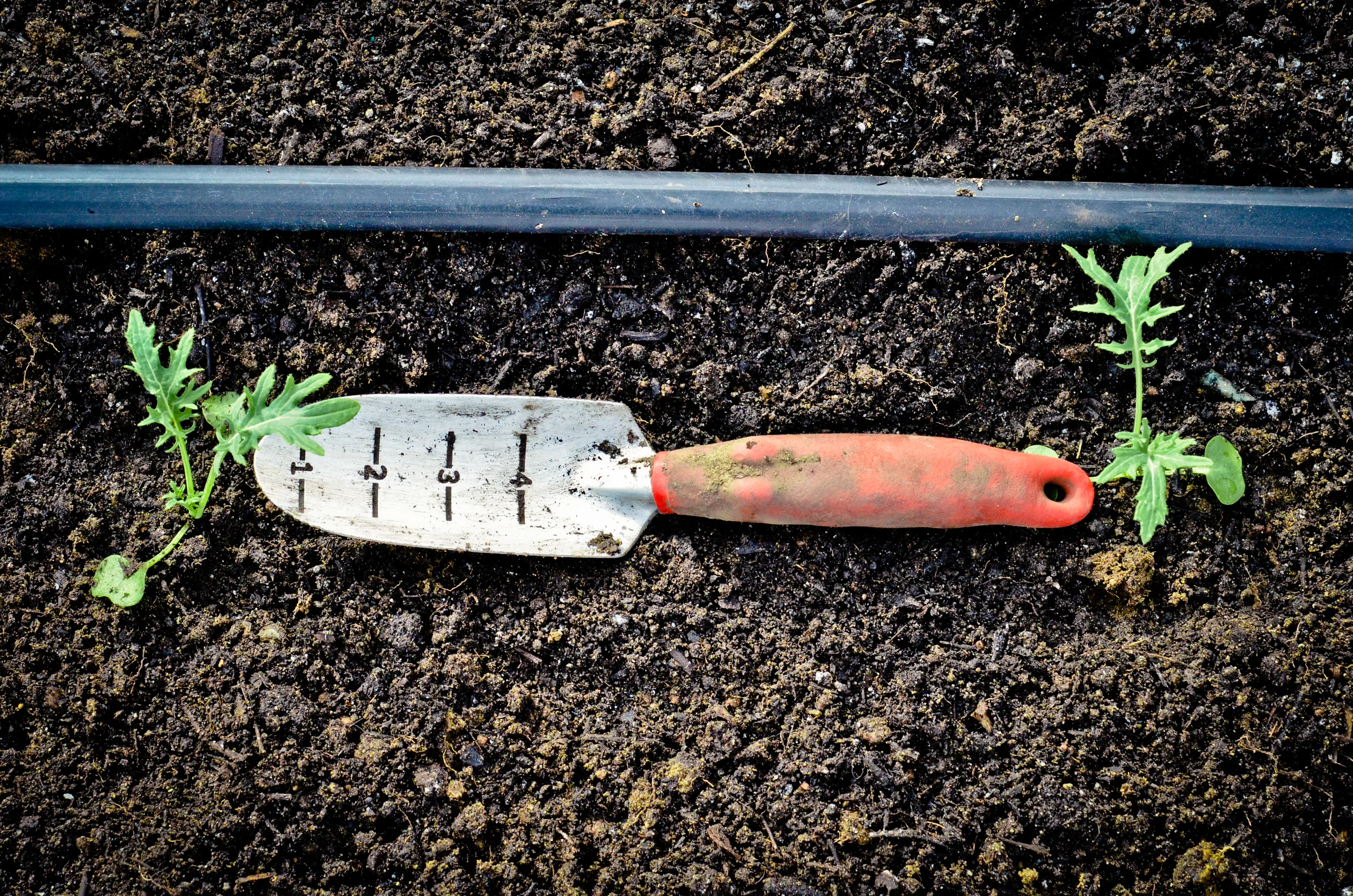Brassicas are the succulent green bones of every vegetable garden. They are loaded with nutrients and fiber and almost everyone can think of at least one Brassica that they like to eat. Some of the most popular members of the Brassica family are: broccoli, Brussels sprouts, cabbage, cauliflower, collards and kale.
If planted properly in the garden Brassicas can be bountiful long-season crops, but more often then not, we see them transplanted way too close together. On a walk around my neighborhood, it is not uncommon to see anemic-looking broccoli or kale planted 2-3 inches away from each other.
Brassicas are heavy feeders, which means they need a lot of nutrients, especially nitrogen. If planted too close together the plants have to compete for these nutrients and therefore will not grow to their full potential. This also means that it is important to fertilize your transplants when they are planted and throughout the season. We add a balanced granular fertilizer and straight blood meal (nitrogen) directly into the hole where we will be planting a brassica.
Most Brassicas are also relatively large plants (cabbage can spread to around 3 feet in diameter!!) so it is important that the plants are spaced far enough apart that they don’t have to compete for light.
Here are some general Brassica plant spacing guidelines:
Broccoli: 12-18’’ apart
Brussels: 18”-2’ apart
Cabbage: 2’ apart
Cauliflower: 18” apart
Collards: 12-18” apart
Kale: 12-18” apart
For more information on growing Brassicas in your garden, check out our book: Food Grown Right, In Your Backyard

